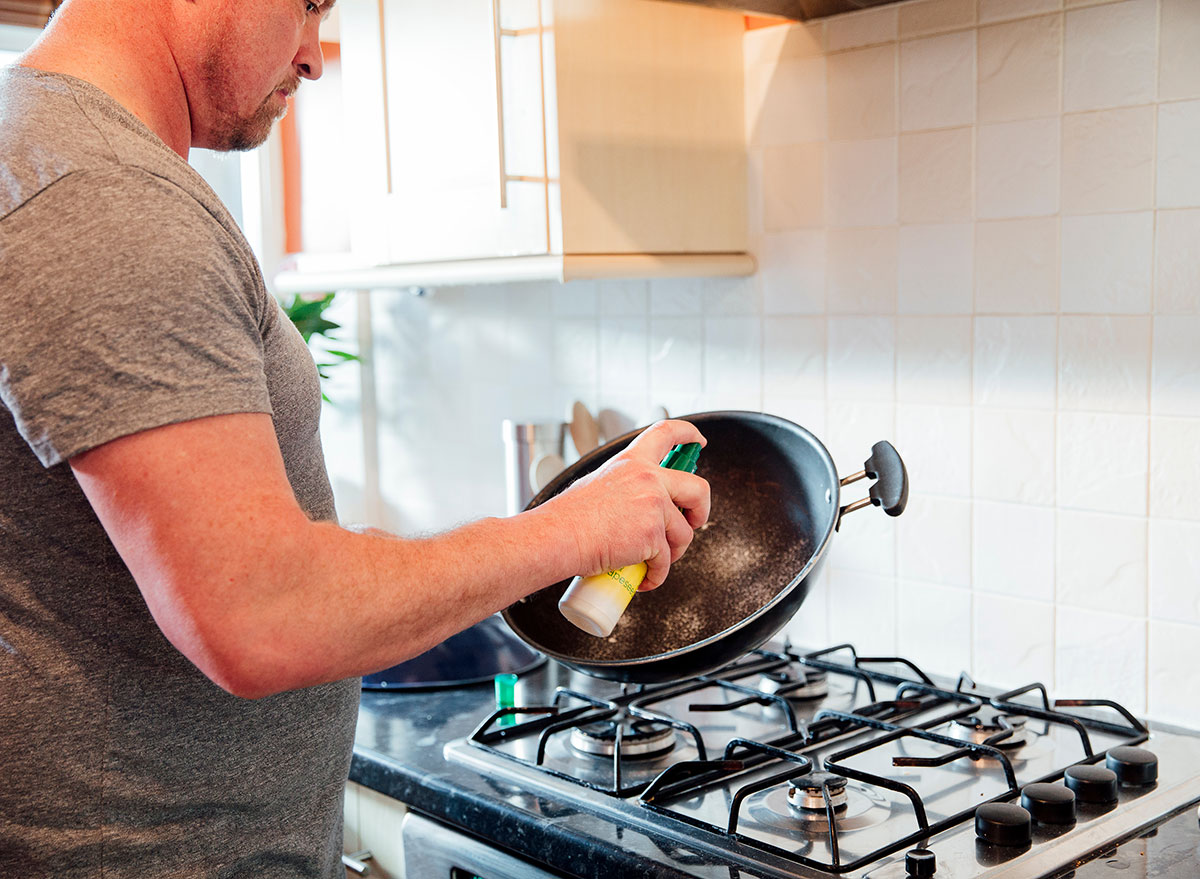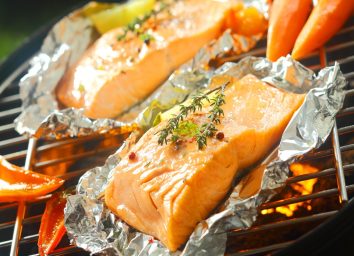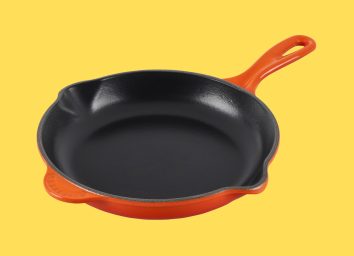One Major Side Effect of Using Cooking Spray, Say Dietitians

When you're trying to prevent food from sticking to a pan or griddle, cooking spray can be a godsend. It creates a consistent coating of oil, allowing you to use less than you would if you were simply pouring it on. The result? You can save some major calories. (And if that's your current mission, you'll definitely want to scope out these 40 Food Swaps That Cut Thousands of Calories.)
"Cooking sprays allow you to have more control over your oil portions," says Grace Clark-Hibbs, RDN. "It's much easier to cover the entire cook surface with a cooking spray than a liquid oil, while also using less oil by volume. Overall, cooking sprays can be a great addition to a healthy diet, especially if you're looking for convenience or to monitor your fat intake."
Still, there's one thing dietitians want you to know about these products: while they're often labeled as having next to zero calories and fat on the nutrition label, that's only because of the serving size.
"Many people are lured in by these 'no calorie' sprays but this is a misconception," says Lisa Young, PhD, RDN, and author of Finally Full, Finally Slim. "The catch is that the serving size is measured by a spray which lasts for a fraction of a second."
Let's be real—who really only sprays their pan for that little time? (And who even has the reflexes to be physically capable of that?) Still, RDs say that using these products may help with portion control, provided you're being mindful of just how long you're spraying for. If you consider that a spray lasting a third of a second is typically about 2.5 calories, and coating a pan takes three to four seconds, that translates to about 22.5 to 30 calories. While it's hardly a zero-calorie solution, it's still a massive difference from the 119 calories in 1 tablespoon of olive oil.
The bottom line? As long as you don't go overboard and only spray for 5 seconds or less, a cooking spray can help you to use far less oil—thus resulting in a lower-calorie dish. Keep in mind that not all cooking sprays are created equal, however. According to the American Heart Association (AHA), some of the healthiest oils to cook with are olive oil, avocado oil, canola oil, and grapeseed oil. The AHA advises choosing oils with no trans fats and less than 4 grams of saturated fat per tablespoon.








